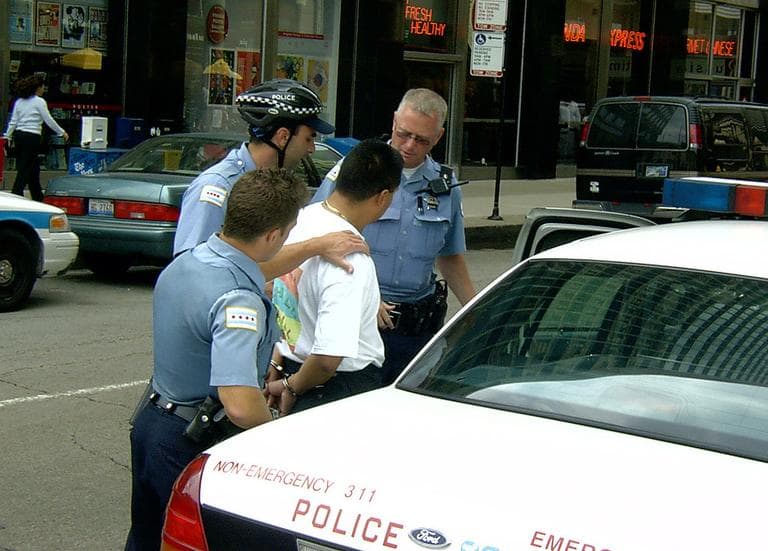Advertisement
Court Affirms Legality Of Recording Police Officers

Unfortunately, a big news story like Hurricane Irene is always going to steamroll over some unrelated news items that would otherwise deserve more attention, so here's a belated acknowledgment of an important story that got a bit buried over the last few days.
Last Friday, the U.S. First Circuit Court of Appeals issued a ruling that affirmed, stronger than ever, the rights of individuals to openly record the actions of police officers.
In 2007, a young lawyer named Simon Glik was walking through Boston Common when he saw three police officers arresting a teenager. Glik thought the officers were getting a little rough, so he flipped open his cellphone camera and started shooting video.
The officers arrested Glik for, in their minds, violating the state's wire-tapping law, even though the whole incident happened out in public and Glik didn't try to conceal the fact that he was recording.
The ACLU took up Glik's cause and the courts threw out the charges against him. Since then, the Boston Police Department has been instructing personnel that the state's wiretapping law does not apply to people making unconcealed audio or video recordings in public. But Glik and the ACLU have pressed on, suing the BPD and the individual officers for violating his First Amendment rights.
The officers moved to have the suit dismissed, saying they were just enforcing an interpretation of the law that was handed down to them by their superiors. But on Friday, the federal court disagreed.
Judge Kermit Lipez writing for the unanimous panel, wrote, "Gathering information about government officials in a form that can readily be disseminated to others serves a cardinal First Amendment interest in protecting and promoting 'the free discussion of governmental affairs.'"
That means that Glik's suit against the officers may now go forward; they could be found liable for Simon Glik's legal costs, among other damages. And while, theoretically, this kind of thing doesn't go on in Boston anymore, ACLU attorney Sarah Wunsch says the court's ruling has broader significance.
Advertisement
"It's going to be very useful in cases around the country where police officers, whether they use wiretap statutes or disorderly conduct or other kinds of laws," Wunsch said. "They've been using those to arrest people who have done nothing other than what Simon Glick did, which is to hold up a cellphone and record what the police are doing."
That's exactly what the circuit court established as a civil right, enjoyed by everyone. Not just those of us in the media.
"Changes in technology and society have made the lines between private citizen and journalist exceedingly difficult to draw," Judge Lipez wrote. "Such developments make clear why the news-gathering protections of the First Amendment cannot turn on professional credentials or status."
In other words, if you openly film a police officer and you don't get in the way or cause a problem, you are within your rights, according to the U.S. First Circuit Court of Appeals.
WBUR contacted the City of Boston to see if their lawyers wanted to make any statement. They said they are reviewing the court's opinion and have not yet decided whether to file an appeal.
This segment aired on August 30, 2011.